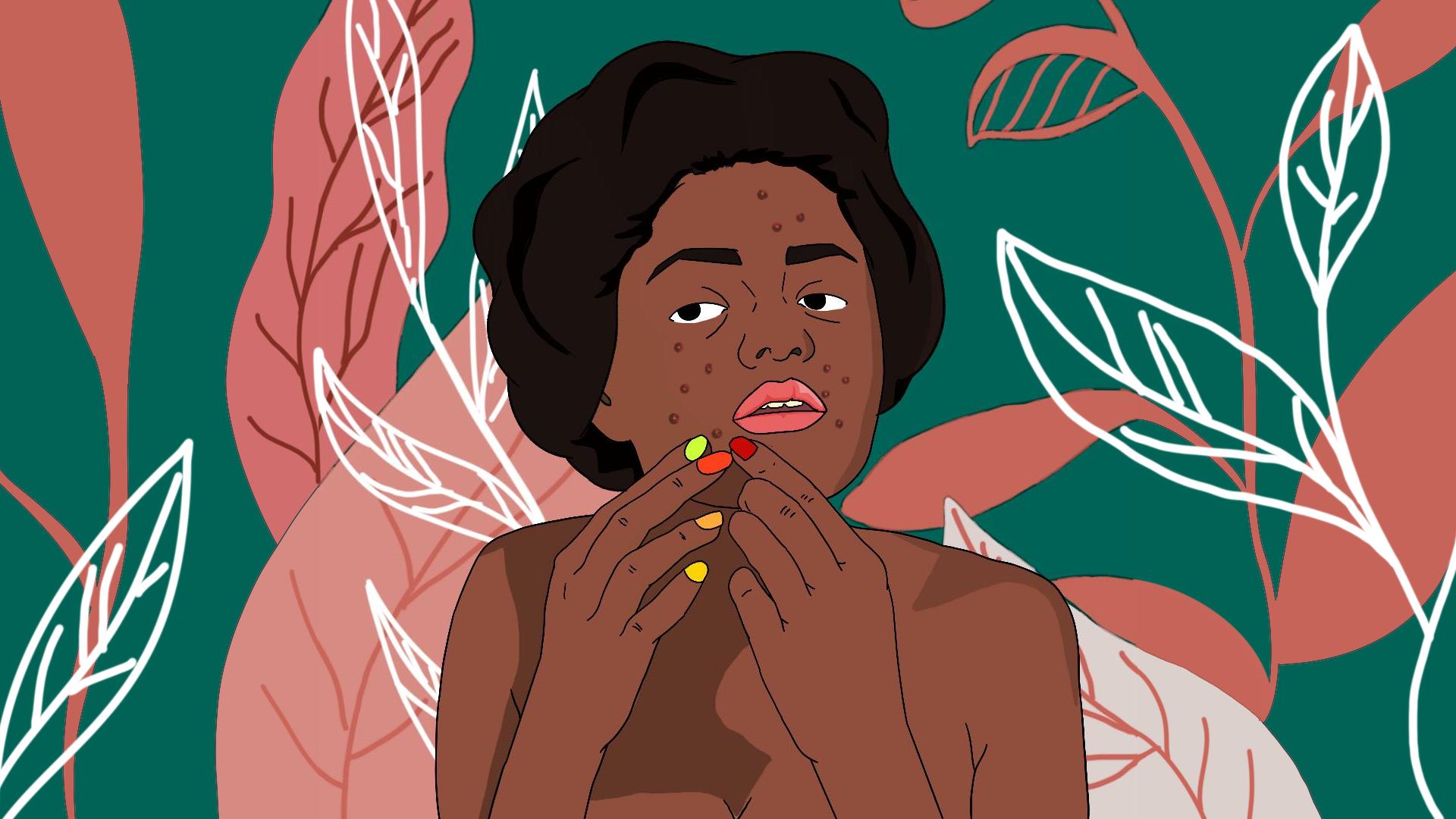🎧 Listen to: Acne (s)

Acne
What is acne?
Acne happens when the tiny pores on your skin get clogged with oil, dirt, and dead skin cells. When this occurs, you may develop a pimple. Acne can appear on your face, chest, back, and shoulders – basically anywhere you have hair follicles. It’s most common in teenagers, but even adults can deal with it.
The myths: what’s not true?
- “Only teenagers get acne!” False! Anyone can get it.
- “Chocolate, kelewele and oily food cause acne!” No, it’s not about what you eat.
- “Popping pimples helps!” Actually, it spreads the bacteria and makes things worse, so don’t do it!
What causes acne?
Acne happens when too much oil, dead skin, or bacteria block your pores. This usually happens during:
- Puberty or pregnancy due to hormones.
- Stress can also make things worse.
- Genes
- Pomades and makeup can block your pores due to the heavy oils in the products.
- Unwashed Pillowcases, due to the dirt and oil building up, it leads to breakouts.
How acne affects you socially?
Acne can make you feel self-conscious, especially if it’s on your face. You might feel shy around friends or even avoid taking pictures. If this happens, don’t hesitate to talk to someone, like a counsellor, to help boost your confidence.
How to manage acne?
- Wash your face daily with mild soap, no sponges!
- Keep your towels and pillowcases clean to avoid bacteria.
- Avoid touching your face. Your hands carry germs.
- Avoid squeezing pimples
- Dry your towels out in the sun
Medications: If the pimples won’t go away, you might need some meds like benzoyl peroxide or antibiotics prescribed by your doctor.
